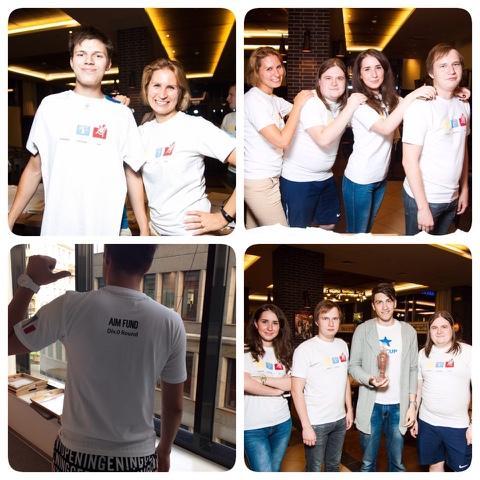
Hi, Codeforces!
Codeforces Round 317 will take place on August, 22 at 19:30 MSK.
The round is prepared by AimFund employees: Kostroma, riadwaw, yarrr, gchebanov, ArtDitel, SirShokoladina and zeliboba.
Scoring system will be static.
Thanks to Mike Mirzayanov(MikeMirzayanov) for brilliant platforms Polygon and Codeforces, problem coordinator Max Akhmedov (Zlobober) and Maria Belova (Delinur) for English translation.
Top 200 div1 participants will be awarded t-shirts. To learn more about AimFund please refer to our previous post.
This round is prepared as part of "5 years" Codeforces program as our present to community. This round is the first Thanks-Round devoted to companies donated significant money.
We wish you good luck and high frequency rating!
P.S: scoring 1 div 750-1250-1500-2000-2750. 2 div 500-1000-1750-2250-2500
P.P.S. Top-20 div2 participants will be awarded t-shirts.
P.P.P.S. Dear friends. We are pleased to inform you that t shirts delivery will be under way next week. We hope you will really like them. Our sincere congrats again to you all!











